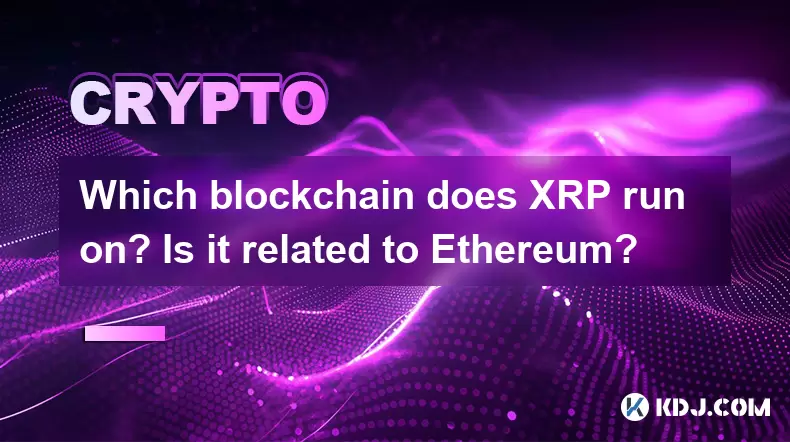-
 Bitcoin
Bitcoin $118300
-3.52% -
 Ethereum
Ethereum $4554
-3.81% -
 XRP
XRP $3.090
-5.78% -
 Tether USDt
Tether USDt $1.000
0.04% -
 BNB
BNB $842.0
-0.27% -
 Solana
Solana $194.6
-3.24% -
 USDC
USDC $0.9998
0.00% -
 TRON
TRON $0.3600
-0.20% -
 Dogecoin
Dogecoin $0.2243
-7.95% -
 Cardano
Cardano $0.9066
2.57% -
 Hyperliquid
Hyperliquid $45.89
-4.06% -
 Chainlink
Chainlink $22.49
-5.34% -
 Stellar
Stellar $0.4261
-6.01% -
 Sui
Sui $3.753
-5.87% -
 Bitcoin Cash
Bitcoin Cash $592.1
-3.33% -
 Ethena USDe
Ethena USDe $1.001
-0.01% -
 Hedera
Hedera $0.2502
-5.51% -
 Avalanche
Avalanche $23.71
-6.22% -
 Litecoin
Litecoin $121.8
-6.36% -
 Toncoin
Toncoin $3.416
-2.58% -
 UNUS SED LEO
UNUS SED LEO $9.323
0.85% -
 Shiba Inu
Shiba Inu $0.00001291
-6.93% -
 Uniswap
Uniswap $10.91
-9.13% -
 Polkadot
Polkadot $4.010
-5.38% -
 OKB
OKB $93.46
-9.08% -
 Dai
Dai $0.9999
0.00% -
 Bitget Token
Bitget Token $4.559
-4.99% -
 Cronos
Cronos $0.1545
-6.93% -
 Ethena
Ethena $0.7362
-5.51% -
 Aave
Aave $311.6
-4.32%
Which blockchain does XRP run on? Is it related to Ethereum?
XRP operates on the unique XRP Ledger, designed for fast, low-cost cross-border payments, using a consensus protocol instead of mining, distinct from Ethereum's blockchain.
May 12, 2025 at 02:42 pm

XRP operates on its own unique blockchain known as the XRP Ledger. This blockchain is distinct from other well-known blockchains like Ethereum, and it was specifically designed to facilitate fast and efficient transactions, particularly for cross-border payments. The XRP Ledger is a decentralized, open-source technology that does not rely on mining, unlike many other cryptocurrencies. Instead, it uses a consensus protocol to validate transactions, which allows for quicker processing times and lower fees.
The XRP Ledger was created by Ripple Labs, a company focused on providing solutions for global financial transactions. The primary purpose of XRP is to serve as a bridge currency, enabling the seamless transfer of value between different currencies and financial systems. This makes it particularly useful for banks and financial institutions looking to reduce the time and cost associated with international money transfers.
XRP Ledger's Unique Features
One of the standout features of the XRP Ledger is its transaction speed. The network is capable of processing transactions in just a few seconds, which is significantly faster than many other blockchain networks. This speed is crucial for the intended use case of XRP, as it allows for near-instantaneous cross-border payments. Additionally, the XRP Ledger has a minimal transaction fee, which is currently set at a very low rate to prevent spam and ensure the network's efficiency.
Another important aspect of the XRP Ledger is its consensus mechanism. Unlike Bitcoin, which uses Proof of Work, or Ethereum, which uses Proof of Stake, the XRP Ledger uses the Ripple Protocol consensus algorithm. This method involves a network of trusted validators that agree on the order and outcome of transactions. This consensus approach not only speeds up the transaction process but also makes the network more energy-efficient.
Is XRP Related to Ethereum?
While both XRP and Ethereum are cryptocurrencies and operate on blockchain technology, they are not directly related. Ethereum is a decentralized platform that enables the creation of smart contracts and decentralized applications (DApps). Its native cryptocurrency, Ether (ETH), is used to pay for transaction fees and computational services on the Ethereum network.
In contrast, XRP is primarily focused on facilitating payments and does not support smart contracts or DApps. The XRP Ledger is designed with a different set of goals and functionalities compared to Ethereum. While both are part of the broader cryptocurrency ecosystem, they serve distinct purposes and operate on separate blockchains.
XRP Ledger's Decentralization and Governance
The decentralization of the XRP Ledger is a topic of frequent discussion within the cryptocurrency community. The network's consensus mechanism relies on a set of validators, which can be run by anyone but are often operated by entities with a vested interest in Ripple Labs. This has led to debates about the degree of decentralization of the XRP Ledger compared to other cryptocurrencies.
Governance of the XRP Ledger is managed through a process that involves the community and Ripple Labs. Changes to the protocol are proposed and discussed publicly, and a majority of validators must agree to implement any changes. This governance model aims to balance the need for innovation and improvement with the stability and security of the network.
XRP's Role in the Financial Industry
XRP has been positioned as a solution for the financial industry, particularly for banks and financial institutions looking to streamline their international payment processes. Several banks and payment providers have explored or implemented Ripple's solutions, which often involve the use of XRP as a bridge currency.
The adoption of XRP by financial institutions is driven by its ability to reduce the time and cost associated with cross-border payments. By using XRP, banks can settle transactions more quickly and at a lower cost than traditional methods, which often involve multiple intermediaries and can take days to complete.
Technical Aspects of the XRP Ledger
The XRP Ledger is built on a robust technical foundation that supports its high-performance capabilities. The ledger uses a distributed ledger technology that records all transactions in a public database, ensuring transparency and immutability. The network's architecture is designed to handle high transaction volumes without compromising on speed or security.
Interledger Protocol (ILP) is another important component of the XRP ecosystem. Developed by Ripple, ILP is a protocol that enables interoperability between different ledgers and payment systems. This protocol allows XRP to function as a bridge currency, facilitating the transfer of value across different networks and currencies.
Frequently Asked Questions
Q: Can XRP be used for purposes other than cross-border payments?
A: While XRP is primarily designed for cross-border payments, it can theoretically be used for any transaction that requires fast and low-cost processing. However, its lack of support for smart contracts and DApps limits its use cases compared to more versatile platforms like Ethereum.
Q: How does the XRP Ledger handle scalability?
A: The XRP Ledger is designed to handle high transaction volumes efficiently. Its consensus mechanism and lack of mining allow for greater scalability compared to many other blockchain networks. The network can process thousands of transactions per second, making it well-suited for large-scale payment processing.
Q: What is the role of Ripple Labs in the XRP ecosystem?
A: Ripple Labs is the company behind the development of the XRP Ledger and the promotion of XRP as a solution for financial institutions. While Ripple Labs does not control the XRP Ledger, it plays a significant role in its development and governance, as well as in promoting its adoption within the financial industry.
Q: How does the XRP Ledger ensure security?
A: The XRP Ledger ensures security through its consensus mechanism, which requires a majority of validators to agree on the validity of transactions. Additionally, the ledger's open-source nature allows for continuous scrutiny and improvement by the community, enhancing its overall security.
Disclaimer:info@kdj.com
The information provided is not trading advice. kdj.com does not assume any responsibility for any investments made based on the information provided in this article. Cryptocurrencies are highly volatile and it is highly recommended that you invest with caution after thorough research!
If you believe that the content used on this website infringes your copyright, please contact us immediately (info@kdj.com) and we will delete it promptly.
- Kazakhstan's Crypto Leap: Bitcoin ETF and Central Asia's Digital Finance Future
- 2025-08-13 12:45:19
- BlockDAG Presale Blazes Past $371M: Fundraising Frenzy Fuels Crypto Sensation
- 2025-08-13 13:05:21
- Meme Coins: Chasing the 2025 Surge – Which Will Moonshot?
- 2025-08-13 10:25:23
- Bitcoin's Wild Ride: Rally, Pullback, and What's Next
- 2025-08-13 10:25:23
- Bitcoin, Bitmax, and Institutional Demand: A New Era of Crypto Investment
- 2025-08-13 10:45:12
- Solana, ROAM, and Airdrops: What's the Buzz in 2025?
- 2025-08-13 11:35:13
Related knowledge

How to purchase Aragon (ANT)?
Aug 09,2025 at 11:56pm
Understanding Aragon (ANT) and Its PurposeAragon (ANT) is a decentralized governance token that powers the Aragon Network, a platform built on the Eth...

Where to trade Band Protocol (BAND)?
Aug 10,2025 at 11:36pm
Understanding the Role of Private Keys in Cryptocurrency WalletsIn the world of cryptocurrency, a private key is one of the most critical components o...

What is the most secure way to buy Ocean Protocol (OCEAN)?
Aug 10,2025 at 01:01pm
Understanding Ocean Protocol (OCEAN) and Its EcosystemOcean Protocol (OCEAN) is a decentralized data exchange platform built on blockchain technology,...

How to invest in Kyber Network Crystal v2 (KNC)?
Aug 12,2025 at 05:21pm
Understanding Kyber Network Crystal v2 (KNC)Kyber Network is a decentralized liquidity hub built on the Ethereum blockchain that enables instant token...

Where can I buy UMA (UMA)?
Aug 07,2025 at 06:42pm
Understanding UMA and Its Role in Decentralized FinanceUMA (Universal Market Access) is an Ethereum-based decentralized finance (DeFi) protocol design...

How to sell my Ren (REN) tokens?
Aug 13,2025 at 11:35am
Understanding REN Tokens and Their Role in Decentralized FinanceREN is an ERC-20 token that powers the Ren protocol, a decentralized interoperability ...

How to purchase Aragon (ANT)?
Aug 09,2025 at 11:56pm
Understanding Aragon (ANT) and Its PurposeAragon (ANT) is a decentralized governance token that powers the Aragon Network, a platform built on the Eth...

Where to trade Band Protocol (BAND)?
Aug 10,2025 at 11:36pm
Understanding the Role of Private Keys in Cryptocurrency WalletsIn the world of cryptocurrency, a private key is one of the most critical components o...

What is the most secure way to buy Ocean Protocol (OCEAN)?
Aug 10,2025 at 01:01pm
Understanding Ocean Protocol (OCEAN) and Its EcosystemOcean Protocol (OCEAN) is a decentralized data exchange platform built on blockchain technology,...

How to invest in Kyber Network Crystal v2 (KNC)?
Aug 12,2025 at 05:21pm
Understanding Kyber Network Crystal v2 (KNC)Kyber Network is a decentralized liquidity hub built on the Ethereum blockchain that enables instant token...

Where can I buy UMA (UMA)?
Aug 07,2025 at 06:42pm
Understanding UMA and Its Role in Decentralized FinanceUMA (Universal Market Access) is an Ethereum-based decentralized finance (DeFi) protocol design...

How to sell my Ren (REN) tokens?
Aug 13,2025 at 11:35am
Understanding REN Tokens and Their Role in Decentralized FinanceREN is an ERC-20 token that powers the Ren protocol, a decentralized interoperability ...
See all articles

























































































